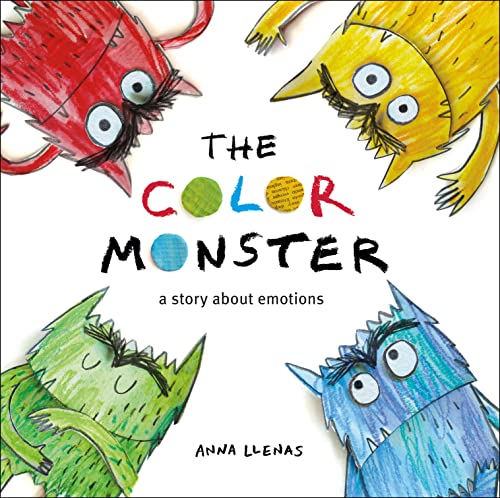15 Tips for Moving Abroad with Children
Moving Abroad with Children Made Smooth(er)
by Allison Baxley & Gemma Gentlesk
With the surge of remote opportunities, travel re-opening all over the world, and a slew of other reasons to leave your home country, many people are considering moving overseas. And many families are considering moving abroad with children.
Moving overseas with kids is not easy, but moving abroad with a family is not impossible, either. In fact, moving to a new country can be incredibly fun and rewarding for the whole family!
Renovating Life contains affiliate links. If you make a purchase through these links, we will earn a commission at no extra cost to you. As an Amazon Associate, we earn from qualifying purchases. Links like this allow us to continue providing top-quality content at no cost to you.
For individuals or couples, it is a bit easier to pack up and go to a new country; however, for families, situations like this can look a little different. Anyone with kids knows that change—whether it's a new house, new school, or new environment—is a much bigger deal when little ones are involved.
Navigating international schools, making new friends, and learning the local language, just to name a few, can feel overwhelming as an adult. It's hard to imagine how kids will handle the transition. Whether you have older children or younger children, change can be difficult, but that does not make living abroad any less fulfilling!
Understanding how to move to Portugal with kids is a heavy load to carry. To help ease children into an expat adventure, get a step ahead with a few tips and tricks for navigating these situations. Hopefully, these strategies will help keep the stress of ticking off your moving to Portugal checklist at bay and allow you to enjoy the process by avoiding potential struggles right off the bat.
Gemma’s Top Tips for Moving Abroad with Kids
Who better to provide such information than a veteran of childhood nomadism? As a military kid, moving was my entire life. And as the eldest of five kids, so was helping with each new move. Here are a few tips my mother taught me (god bless her, she's a hero) as well as a few tricks I picked up along the way.
1. Get Kids Involved
Get kids excited about packing their own things—help them understand they get to keep the memories of the old, they are simply carrying them over to the new! Let them pick their rooms in your new home, or their new furniture or decor. Make them feel like they're a part of the process. Kids love being treated like they are all grown up, and it is a great way to get more done!
2. Stay Positive
This may sound like a no-brainer, but when the pressure is on, this piece of advice is often the first to go out the window. Even if things are not going as smoothly as you hoped...kids feed off your energy. If you keep things upbeat, they will stay excited about the process, which will keep you excited about the process.
Trust me. Frame it as an adventure, and it will be significantly more fun—for all of you!
Museu Condes de Castro Guimarães - Cascais, Portugal
3. Show Kids Pictures and Videos of Their New Home/Town
Kids are incredibly visual, so simply telling them about a new place may not be enough for them to envision their new life abroad. Or their imagination may run wild in the wrong direction. When my father got orders to relocate to Texas, my five-year-old imagination could not get past empty deserts, cacti, and tumbleweeds. So. Many. Tumbleweeds.
Now, anyone who has lived in San Antonio knows that is not the extent of social life there. BUT, there was NO fixing that image for me once it was set. Plan a pre-emptive strike by SHOWING them how it will be an adventure! Yes, there will be cacti, but there will also be a Rainforest Cafe and colorful stones at the Alamo, and riverboats at the River Walk.
Find places similar to their favorite spots in your current town, and also new ones that they can get excited about!
4. Let Kids Plan the First Adventure
Kids love getting to make decisions and having a sense of autonomy. Plus, exploring the area as soon as possible creates a positive familiarity with their new surroundings. This helps children adapt quicker, enabling them to feel safe and "at home" despite the new world around them. Even more introverted kids can find somewhere fun to visit if you get creative!
When I was little one of my favorite things to do was wander the Blockbuster aisle (wow, what a throwback) and explore all the new DVDs and old VHS tapes...watched over by Jim Carry's Riddler painted on the wall. Another favorite was the library, getting a library card like the adults, sitting on the floor reading for an hour or so, and then getting hot chocolate afterward.
My point is, there are always little corners of the world for everyone, even if they are not the adventurous type. Giving them the chance to choose places to go creates a sense of belonging, and will remind them that there is always a space for them—no matter where they go.
5. Get a Hotel Room or Vacation Rental During the Last Days of Packing
Kids love hotels (I mean, who doesn't). If that's not in your budget, another fun option is staying with family or friends, which also allows them to spend time with the people they care about before saying goodbye. Removing kids from the sometimes chaotic packing environment keeps the situation light by eliminating some of the negative emotions that arise at the sight of their lives being packed up or discarded.
6. Surprise Kids with Goodies to Take on the Plane and to Their New Home
Again, the less kids experience an empty house, the less lonely the whole process will feel. When I was little, art supplies and magnetic games were great because they kept us occupied for hours. Crayons were easily replaceable and magnets were less likely to get lost than regular pieces.
However, iPads and portable gaming systems make it even easier to keep kids happy during prep and travel. For only a couple of bucks, a new game or movie download can keep kids busy while you knock out the boxes!
Check out my favorite essentials for traveling with kids!
7. Have Kids Pack as They Would for a Vacation
As I mentioned before, have kids pack their own bags (or choose their favorite things is they are too young to pack themselves), but ONLY have them pack the suitcases that they are bringing with them. Let them pack everything they will need until the rest of the boxes arrive, but not EVERYTHING.
Packing a few suitcases of favorites and entertainment will make the whole experience feel like going on any other trip. Have someone else pack up the rest of their room when they are not around so that the whole situation feels more like going on a family vacation and less like a goodbye.
8. ALWAYS Pack Valuables in the Suitcases Going With You
You do not want anything precious to them (or you!!) to get lost in the move. This one took my family a couple of tries to get right. I cannot emphasize this enough. Seriously. Nothing puts a damper on a move quite like losing something you care about, especially when it's irreplaceable.
"Ohana means family, and family means nobody gets left behind or forgotten." We all know THAT teddy bear with half a paw and matted fur is not only a part of the family but also worth more than your own life—guard it accordingly.
9. Establish an Emotional Plan From the Start
Whether it's a code word to let you know when they are overwhelmed or a quiet space for anyone who needs some time to themselves—including you—it’s important to have a plan from the start. Having a collaborative strategy in place before the pressure hits is super helpful in establishing a positive environment for emotional growth and problem-solving throughout the moving process. This establishes a supportive environment from the get-go, creating a sense of unity for the coming months of bustle and planning.
Give kids the space to process the change in whatever (healthy) way necessary. Their bodies are naturally going to be unsettled by extreme change and, while this feeling is useful as a survival instinct, it can be a lot to overcome for anyone. Particularly for young ones who may not have yet developed coping strategies.
If you sit down and help them determine what strategies work best for them—whether it's exercise, writing, music, quiet times, or new hobbies—it will not only reinforce their trust in your concern for their well-being but also establish a base understanding of methods for healthy adaptability that they can apply in the future.
10. Designate Days When the Move is Not Discussed
These “no talk about the move days” serve as rest and reset days, giving everyone's bodies the chance to work through any emotions that may be arising throughout the process. Take these days to spend time with friends and family. Or visit some of your favorite places in the area you are leaving and really appreciate the period of time you have spent there.
Such a big move can be all-consuming, so allowing your mind and body to process closure positively is extremely important and often overlooked when faced with a huge change like moving abroad with children.
My Top Tips for Moving Abroad with Kids
Having just gone through a move abroad with children, please allow me to share some of the strategies (in addition to Gemma’s) that helped when preparing our kids for the move.
11. Pick the Right Place and Time to Tell Them
Depending on how emotionally mature a child is, you may decide to break the news of the move earlier or later. In our case, my daughter does not do particularly well with change. Transitions have always caused trouble. Because we know this, we chose to wait until just a few weeks before the move to tell our daughter. That way she wouldn’t have a lot of time to obsess, get upset, or stew about it. By the time we told her, we were ready to start packing up the house!
Also, we made sure to tell her when there were no distractions. Her brother (too young to understand) was at daycare, we had just picked her up from camp and had ice cream. And we had been asking leading questions for months without ever explicitly stating anything about a move.
Her mind was primed, she was calm, happy, and not distracted. And when it was all said and done, we really hadn’t given her enough credit. She was a little upset about leaving friends and the only home she’d ever known in her 5 3/4 years on Earth, but in the end, by using some of these strategies, she was excited about our next chapter in Portugal.
12. Encourage Them to Ask Questions
When kids don’t understand something, it can automatically become something to fear. That’s why it’s important to allow them to ask as many questions as they need to be able to understand what is happening. Understanding takes the fear out of the unknown.
After explaining what was going to happen, why we had made the decision to move overseas as a family, and how much we were excited about it, we invited her to ask any questions she had. This allowed her to have a voice, get answers to her questions, and ultimately, ease her initial fears.
13. Let Them Be Kids
I sometimes forget that my daughter is as young as she is. She is very tall for her age, fairly mature for her age, and most of her life has been grouped with older kids. I have a bad habit of expecting her behavior to match the optics, not her actual age. So, I have to remind myself that she is only a kid. At the time of our move, a five-year-old kid.
Crying, outbursts, seemingly unwarranted fear, and in our case interrupted sleep have all made an appearance. I just have to remind myself that she is still trying to figure out how to process her emotions. Kids have big feelings in tiny bodies, so I continue to learn how to give her the grace she deserves during this transition.
14. Make Choices with Them in Mind
There’s a ton of planning that goes into a move, particularly a move overseas, and especially when moving abroad with family. It’s important to keep in mind what types of environments will offer you and your children the best chance to thrive. Is that a farm in the country? An apartment in the city? Or a home with a pool and backyard?
Will your kids welcome the challenge of being thrown into the public school system in a new language? Or will they need more support in a private school setting? Or is an international school with English curriculum a better option? Here is a great article on how we navigated selecting a school for our kids in Portugal.
Only you know the answers to these questions. You have to do what feels right for THEM. I’m not saying every decision. But when it comes to setting your kids up for success in a new country, things like schools, location, and potential for expat support and community can make a new life in a new country go boom or bust.
15. Make Connections Before You Get There
One of the BEST things we did to help our daughter accept and get excited about moving abroad was finding friends for her before we even moved. As previously stated, she was very upset about leaving her friends in Brooklyn, so telling her that we already had some friends to play with when we arrived in Portugal went a looooooong way in making her more comfortable with the unknown.
How did we make friends abroad before even arriving? Find out here.
Lastly, a gentle reminder: you are only human. You are going to do your best, but things may come up that are out of your control. If the waterworks do come, remember to take a deep breath. Kids are people—same levels of emotion, just trapped in a slightly less cognitively developed body. It may sound repetitive, but it will be enough if this strategy is the only thing you take away from this article.
Focus on giving them resources to help them communicate their feelings. This is huge for developmental growth, as well as pertinent for diffusing intense meltdowns. Moves are no walk in the park, no matter how much preparation you put into them. Making sure your children know their feelings will be heard, respected, and addressed really makes a world of a difference.
Moving overseas with children is challenging and can test you in ways you've never been tested before. But remember, your family is your team, treat them as such—kids imitate what they see. Ask how you can support them, and they will find little ways to support you. Do this and I promise, the coming months will fly by as your adventure begins!
And don’t miss these helpful resources for moving abroad.
Books for Kids About Moving
Books can help kids put to words and pictures how they’re feeling about certain situations. Here are some fun and helpful children's books about moving we bought for our daughter!
Books for Kids About Travel & Portugal
Books can be a great way for kids to understand different subjects and get excited about things they don’t know. Here are some awesome kids’ books/journals about travel and Portugal that we bought for our daughter to get her excited about our move to Portugal!
Books for Kids About Feelings
Sometimes, kids don’t know how to put their feelings into words. Here are some of our favorite books that talk about feelings!
Move to Portugal
Renovating Life contains affiliate links. If you make a purchase through these links, we will earn a commission at no extra cost to you. As an Amazon Associate, we earn from qualifying purchases. Links like this allow us to continue providing top-quality content at no cost to you.







































